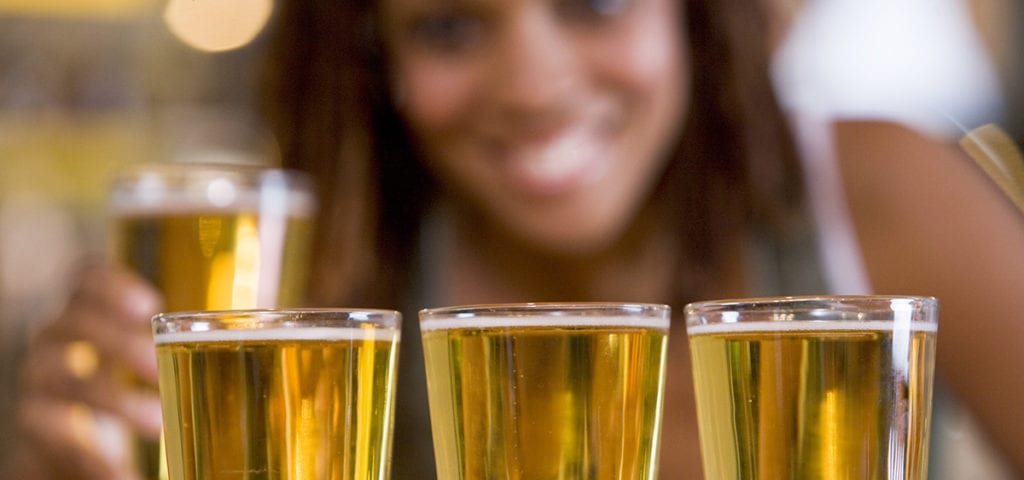A recent investigation based on research by Cowen and Co. found that binge drinking rates in states where adult-use cannabis has been legalized have fallen 9 percent below the national average.
Binge Drinking Drops 9% Below National Average in Legalized States

Full story continued below.
Advertisement
Based on research from Cowen & Co, Grand View Research reports that binge drinking in U.S. states with legal recreational cannabis has dropped 9 percent below the national average, according to Financial Buzz. The researchers found that excessive drinking in states with legalized cannabis is also 11 percent lower than in states where cannabis remains outlawed.
Washington, one of the first states to legalize recreational use, reported last year that about 15.6 percent of adults said they had four or more drinks – the threshold for ‘binge drinking’ – on just one occasion in the past month; the national average of 17.4 percent, according to the United Health Foundation’s America’s Health Rankings.
A February report by IWSR Drinks Market Analysis and BDS Analytics, titled Beverage Alcohol, Cannabis and the Changing US Consumer: What are the Real Risks and Opportunities to Consumption Behaviour?, found, however, that in states with adult-use sales, alcohol consumption “still remains higher” with twice as many adults 21-and-older consuming alcohol compared to cannabis, the Spirits Business reports.
Brandy Rand, IWSR’s U.S. president, told Spirits Business that while cannabis adoption was “not mainstream,” it “does pose a risk to the beverage alcohol industry in the future.”
“It’s important that alcohol brands pay attention to their consumers, recognizing that some occasions may result in a decrease in alcohol consumption in place of, or alongside, legal cannabis.” – Rand, to Spirit Business
Jessica Lukas, vice president of BDS Analytics, said the firm’s research shows that up to 40 percent of legal-age adults consume cannabis in legal states.
“Cannabis presents substantial opportunities across consumer industries, including new occasions that alcohol cannot and will not play,” she said in the report. “Consumers will continue to look to cannabis products over alcohol for occasions when they are feeling creative, need to get motivated, or seeking health, medical or wellness benefits.”
A 2018 Euromonitor International survey of 50,000 young adults and adolescents in the U.S. found that college students who consumed alcohol daily halved in just one year from 4.3 percent in 2016 to 2.2 percent in 2017. In 1980, 6.5 percent of that population used alcohol daily. In 2017, Yahoo! News found that the majority of the 55 million cannabis users in the U.S. are millennials.
A New Frontier Data study in April found that 65 percent of survey respondents said they prefer cannabis to alcohol if given a choice, 45 percent indicated they would likely replace some of their drinking with cannabis in the future, and 47 percent said their drinking habits had not changed.
Some studies and anecdotal evidence suggests cannabis could be useful as an exit drug for alcoholics, and a 2018 study suggests that CBD could be used to reduce the risk of relapse among recovering alcohol and cocaine addicts.
Alcohol company Constellation Brands owns about 38 percent of Canadian licensed cannabis producer Canopy Growth.
Get daily news insights in your inbox. Subscribe
End